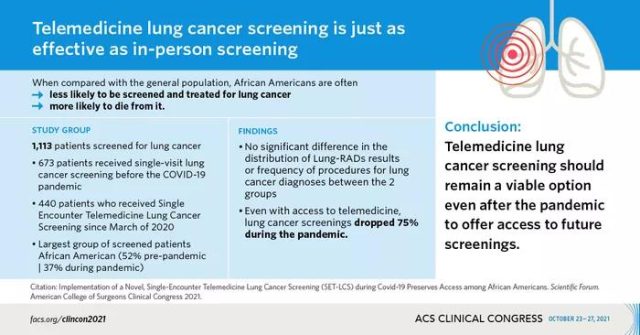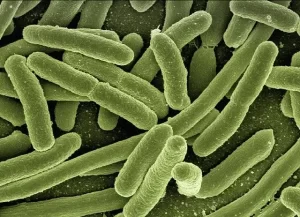How to carry out more effective lung cancer screening during COVID-19 outbreak?
- Did Cloud Seeding Unleash a Deluge in Dubai?
- Scientists Identify Gut Bacteria and Metabolites that Lower Diabetes Risk
- OpenAI’s Model Matches Doctors in Assessing Eye Conditions
- UK: A Smoke-Free Generation by Banning Sales to Those Born After 2009
- Deadly Mutation: A New Monkeypox Variant Emerges in the DRC
- EPA Announces First-Ever Regulation for “Forever Chemicals” in Drinking Water
How to carry out more effective lung cancer screening during COVID-19 outbreak?
- Red Yeast Rice Scare Grips Japan: Over 114 Hospitalized and 5 Deaths
- Long COVID Brain Fog: Blood-Brain Barrier Damage and Persistent Inflammation
- FDA has mandated a top-level black box warning for all marketed CAR-T therapies
- Can people with high blood pressure eat peanuts?
- What is the difference between dopamine and dobutamine?
- How long can the patient live after heart stent surgery?
How to carry out more effective lung cancer screening during COVID-19 outbreak? This virtual screening method will bring huge help to patients!
Introduction:
Recently, scientists have discovered a new method that can preserve lung cancer screening opportunities during the COVID-19 pandemic, especially in a hospital that mainly focuses on African-American patients, and can be used to increase future screening opportunities . What kind of help will this method bring to lung cancer screening…
The World Health Organization report shows that 1.8 million new lung cancer patients worldwide each year, 1.6 million deaths due to lung cancer.
Data show that the current overall 5-year survival rate of lung cancer is only 13.9%, and the survival rate of lung cancer at different stages varies greatly. For example, inoperable advanced lung cancer, the 5-year survival rate is only 2 to 3%; the 5-year survival rate of advanced lung cancer that can be surgically removed is about 20-40%; and early lung cancer, especially lung cancer less than 2 cm in diameter, is 5 years The survival rate can reach 90-100%.
Such a disparity in survival rates can only explain one problem: the most effective and most critical thing in the diagnosis and treatment of lung cancer is time. Only early detection, early diagnosis, and early treatment can effectively improve the patient’s recovery and increase the survival rate.
However, because there is no body nerve distribution in the lungs, lung cancer is not painful or itchy in the early stage, and it is difficult to perceive symptoms from the symptoms, so an auxiliary examination must be passed.
However, in recent years, the spread of the COVID-19 epidemic has greatly reduced the number of people screened for lung cancer. How to effectively promote lung cancer screening?
Recently, a new study was presented at the 2021 Virtual Clinical Conference of the American College of Surgeons: A new type of lung cancer screening during the COVID-19 pandemic showed that a virtual single screening is as effective as a single screening performed in person in a hospital.
The virtual lung cancer screening study was conducted at Temple University Hospital in Philadelphia, which has a large number of African-American patients, so scientists can more clearly 222 African Americans have gaps in medical treatment, especially in lung cancer.
Jessica S. Magarinos, MD, resident of General Surgery at Temple University Hospital and the first author of the study, explained: “Compared with the general population, they are less likely to receive lung cancer screening and treatment, but are more likely to die of lung cancer. “Although the main author of this study hypothesized that the differences in telemedicine lung cancer screening will increase during the COVID-19 epidemic, this is not the case. Dr. Magarinos said in the report: “Our research shows that telemedicine screening can cover African Americans in a safety net hospital.” These are some of the outstanding advantages of telemedicine screening:
- -Telemedicine screening has preserved the opportunity for lung cancer screening for a large number of African-American patients in a safety net hospital during the COVID-19 pandemic.
- -Although people have the opportunity to screen for lung cancer through telemedicine, the rate of lung cancer screening dropped by a full 75% during the pandemic.
- -Telemedicine lung cancer screening is not only a viable option for people to continue lung cancer screening after the COVID-19 epidemic is over, it may also be effective for other types of cancer screening.

During the COVID-19 pandemic, a new type of one-case telemedicine lung cancer screening (SET-LCS) was implemented, which has the advantage of preserving access to African Americans
More people now need to be screened for lung cancer
Lung cancer is a very scary cancer. More people die from lung cancer every year than from other cancers. Cherie P. Erkmen, MD, a thoracic surgeon at Temple University Hospital and the lead researcher of this retrospective study, said: “If these lung cancer patients are detected early, lung cancer can be successfully treated, but only about 3-6% meet the lung cancer screening.
People who are eligible for screening can be screened. This ratio is really too low. In general, our current work in promoting people’s acceptance of lung cancer screening is not optimistic, so we must find a very effective way , To help people carry out more effective lung cancer screenings, thereby reducing the number of preventable lung cancer deaths.”
With the spread of the COVID-19 epidemic, many patients have followed the recommendations of scientific advisory groups such as the American College of Chest Physicians and decided to postpone their lung cancer screening. The authors at Temple University in Philadelphia decided to quickly switch to providing remote medical lung cancer screening, which can reduce the risk of contracting the new coronavirus. Earlier this year, the American Cancer Society was one of the main medical institutions that urged patients not to miss cancer screening due to the COVID-19 epidemic.
Research methods:
The researchers compared two groups of patients. One group of patients was 673 patients who underwent a single visit for lung cancer screening before the spread of the COVID-19 epidemic, and the other group of patients was since the beginning of the COVID-19 outbreak in March 2020, which led to the implementation of lockdown measures across the United States.
440 patients undergoing a single telemedicine lung cancer screening. For the lung cancer screening population, the authors reviewed and analyzed the data collected prospectively in February 2021 and before; for these two groups, they observed the race, smoking history, education level, and classification of different patients for assistance Low-dose CT lung cancer screening (Lung-RADS), cancer diagnosis and staging, and follow-up compliance using chi-square test and Fisher’s exact test.
Research results
The results of the study are as follows: there is no significant difference in the ethnic distribution of patients before and after; Dr. Margarinos said that in each case screened, African Americans accounted for the largest proportion of these patients (the proportion of them before the epidemic) (52%, the proportion after the epidemic was 37%). There is a significant difference in smoking history; 65% of those who were screened before the epidemic were active smokers, and after the epidemic, this proportion dropped to 33%.
The author’s final conclusion is that the distribution of grades used to assist low-dose CT lung cancer screening (Lung-RADS) results is not significantly different (the difference between a single visit and telemedicine); there is also no significant difference in the frequency of cancer diagnosis procedures. . These multiple findings led the researchers to conclude that telemedicine screening is as effective as in-person screening in a hospital.
Although telemedicine methods have allowed many patients to be screened for lung cancer, as mentioned above, the overall number of people screened for lung cancer during the COVID-19 pandemic has dropped by 75%. Therefore, Dr. Erkmen hopes to continue to carry out remote medical lung cancer screening for patients after the COVID-19 epidemic. This screening method will eliminate some of the obstacles encountered in screening and will help more people to be screened.
Dr. Magarinos said: “This kind of telemedicine screening is very effective. It is not only suitable for lung cancer, but also for other types of cancer, including breast cancer or colorectal cancer. Hope this method will become more and more effective. Many cancer patients bring the gospel!”
Reference materials:
https://www.eurekalert.org/news-releases/932355
How to carry out more effective lung cancer screening during COVID-19 outbreak?
(source:internet, reference only)
Disclaimer of medicaltrend.org
Important Note: The information provided is for informational purposes only and should not be considered as medical advice.



